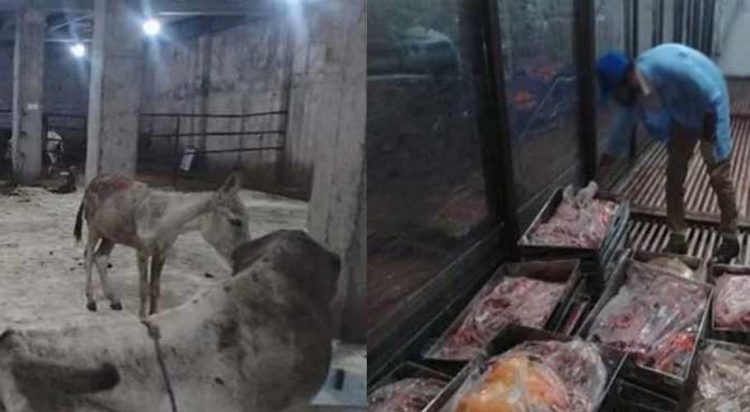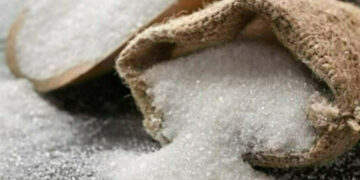The sale of donkey meat is prohibited in Pakistan, yet reports of its illegal sale occasionally surface, raising public concerns about the risk of consuming donkey meat disguised as beef or mutton.
Recently, the Islamabad Food Authority conducted a raid in the Tarnol area, where they discovered over 50 donkeys and recovered 25 maunds of meat. A clandestine slaughterhouse had been established in Tarnol specifically for processing donkey meat.
Donkeys were slaughtered at this facility, and their meat was stored in cold storage. Part of the meat was intended for foreign nationals residing in Pakistan, while donkey hides and meat were also being supplied to foreign markets.
Sources revealed that a butcher had been brought in from abroad to slaughter the donkeys. Additionally, two foreign nationals, who were allegedly running this illegal operation, have been arrested. Authorities recovered the remains of 14 slaughtered donkeys and rescued 45 live donkeys from the premises.
However, according to initial investigations, there is no concrete evidence that donkey meat had been distributed to local markets for public consumption.
How to Spot Donkey Meat?
Donkey meat can be difficult to distinguish from beef or goat meat, but there are certain characteristics that may help in identifying it:
Color and Texture: Donkey meat is generally darker red in color and has a fine-grained texture. It contains less fat compared to other meats, and the fat is usually whitish-gray.
Meat Fibers: The fibers of beef or mutton are slightly tougher, while donkey meat fibers are softer and stickier. If you place a large piece of donkey meat on your palm, it is likely to slide off or fall due to its sticky texture, unlike beef or goat meat, which tends to stick to the hand.
Smell: When cooking, donkey meat may emit a distinct sweet smell that some women can recognize. The aroma may become stronger or unpleasant as it cooks.
Taste and Chewiness: Donkey meat tends to have a slightly sweet taste and is often harder to chew compared to beef or mutton.
Foam Test: An indigenous method used in Kenya to identify donkey meat involves boiling the meat. Donkey meat is said to produce more foam than regular meat when boiled.
By observing these signs, consumers can better ensure that they are not inadvertently purchasing donkey meat in place of beef or goat meat.
It is crucial to always purchase meat from certified butchers, preferably where the animal is slaughtered in front of you, or from government-approved meat markets where meat is properly stamped and verified.






































